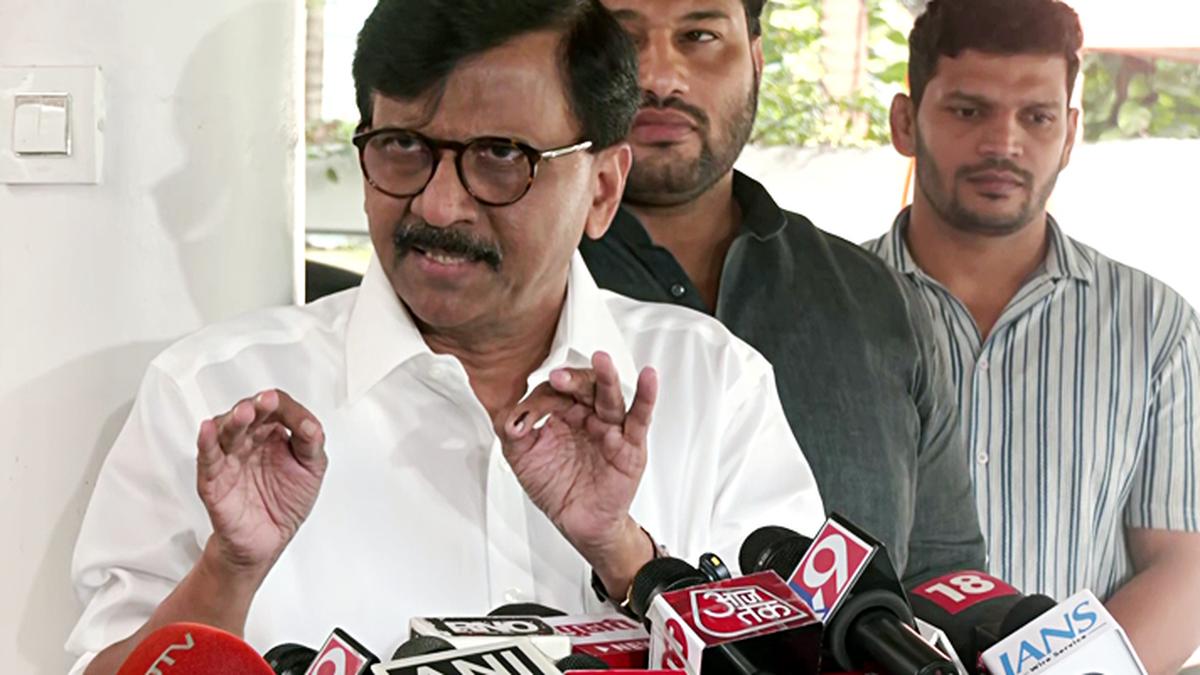 |
|
Sanjay Raut, a leader of the Shiv Sena (UBT), has launched a scathing attack on former Chief Justice of India D Y Chandrachud, alleging that his actions facilitated the political defections that significantly impacted the recent Maharashtra Assembly elections. Raut contends that Chandrachud's failure to promptly address disqualification petitions related to the Shiv Sena split in 2022 emboldened defectors and undermined the rule of law. This assertion directly links the perceived inaction of the Supreme Court under Chandrachud's leadership to the poor electoral performance of the Uddhav Thackeray faction of the Shiv Sena, which won only 20 out of 95 contested seats. The criticism extends beyond the Shiv Sena; the Congress and NCP also suffered significant losses, highlighting a broader sense of discontent within the Maha Vikas Aghadi (MVA) alliance. Raut's remarks underscore a deep-seated political grievance and raise important questions about the role of the judiciary in safeguarding the integrity of the political process, specifically concerning anti-defection laws and the timely resolution of related legal disputes.
The core of Raut's argument rests on the assertion that a swift and decisive ruling on the disqualification petitions would have prevented or at least mitigated the scale of defections within the Shiv Sena. He argues that the delay created an atmosphere of impunity, allowing politicians to switch allegiances without fearing immediate consequences. This interpretation suggests a failure of the judicial system to deter political opportunism, allowing for the erosion of party discipline and potentially altering the political landscape of Maharashtra. The delayed ruling, according to Raut, allowed the Eknath Shinde-led faction to consolidate its power and ultimately emerge as the dominant force within the Shiv Sena. This narrative casts the former CJI's actions, or inaction, as a pivotal factor in the outcome of the 2024 state assembly elections, framing it as a contributing factor to the MVA's defeat and the subsequent formation of a new government.
Beyond the specific accusations against Chandrachud, Raut's statements also reveal a broader critique of the current political climate in Maharashtra. His comments about the influence of the 'Gujarat lobby' in the selection of the next Chief Minister, and his acknowledgement of the RSS's role in the Mahayuti's election campaign, suggest a complex interplay of political forces at play. These observations highlight the challenges facing the opposition alliance and point to a deeper analysis of the factors influencing the results beyond just judicial decisions. The accusation that the RSS conducted 'venomous campaigns' impacting the MVA's performance also raises concerns about the potential influence of non-political actors in shaping election outcomes. The entirety of Raut's statements paint a picture of a deeply contested and politically charged environment, with accusations of deliberate actions intended to subvert the electoral process.
The ramifications of Raut's accusations extend beyond the immediate aftermath of the Maharashtra elections. They raise crucial questions about the independence of the judiciary and its role in enforcing anti-defection laws, which are designed to maintain political stability and prevent opportunistic shifts in party allegiances. The debate also brings to the forefront the complexities of balancing judicial independence with timely action in politically sensitive cases. The criticisms leveled against Chandrachud prompt a discussion about whether the judicial system effectively addresses such challenges and whether existing legal frameworks adequately deter defections. Moreover, the allegations highlight the need for a thorough examination of the political strategies employed during the election, including the role of external influencers and the impact of negative campaigning on the electorate.
Ultimately, Raut's statements serve as a powerful illustration of the intense political battles currently underway in Maharashtra. The accusations are likely to spark further debate and scrutiny, prompting a re-evaluation of the events surrounding the Shiv Sena split and the subsequent election results. The controversy underscores the significance of the anti-defection laws and the vital role the judiciary plays in their enforcement. This case serves as a potential precedent, shaping future debates and legal interpretations surrounding political defections and the timely resolution of related legal challenges. The long-term consequences of this conflict are yet to be seen, but the accusations are likely to continue to reverberate throughout the political landscape of Maharashtra.
Source: Ex-CJI Chandrachud removed fear of law from political defectors, claims Raut
